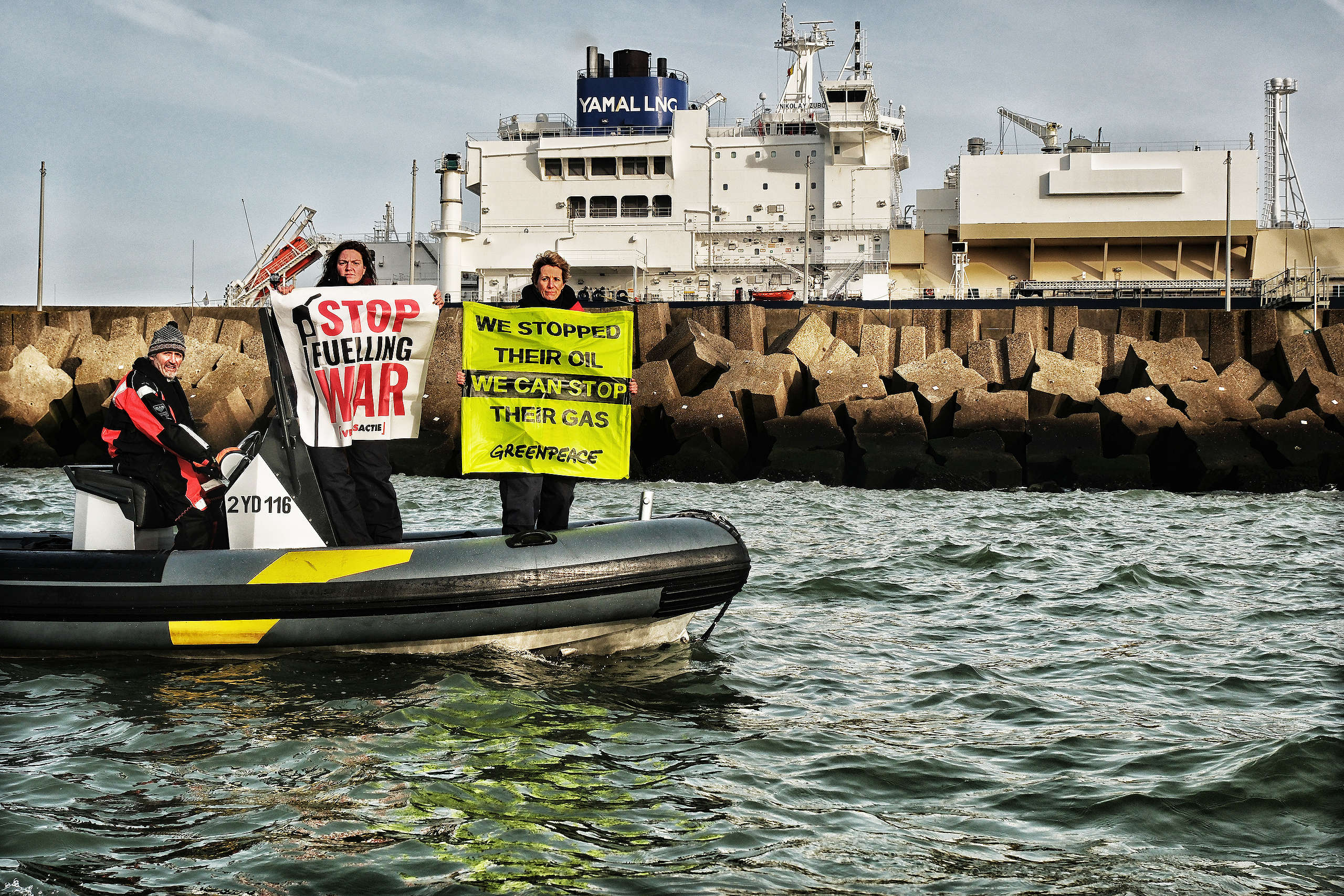ClientEarth bekijkt samen met Greenpeace, BBL en een tiental andere ngo’s om in beroep te gaan tegen de beslissing van de Vlaamse autoriteiten om een nieuwe vergunning te verlenen aan ‘Project One’ van Ineos. “De toelating voor dit project dat ons voor tientallen jaren vastketent aan het gebruik van schadelijk schaliegas en de productie van wegwerpplastic, is onverantwoord en brengt onze klimaat- en milieudoelen in gevaar”, zeggen de ngo’s.
Meer uitleg over de positie van de ngo’s vindt u in onderstaand Engelstalig persbericht.
Ineos must prepare for fresh legal challenge over plastics project
Lawyers at ClientEarth have announced their plans to challenge the Flemish authorities’ fresh approval of petrochemicals giant Ineos’s plastics plant project in the Port of Antwerp, Belgium. Together with partners, the lawyers are gearing up to take action to block the project.
The approval gives the green light to Ineos’s fresh permit for ‘Project One’. ClientEarth, together with 12 NGOs, has challenged the project at each stage of its approval process, repeatedly stating that it fails to meet the legal requirements and should not be approved.
The news comes following a recent analysis by the Institute for Energy Economics and Financial Analysis (IEEFA), showing existential financial risks facing the project.
Those findings are all the more worrying given the Flemish authorities are providing a governmental guarantee of up to €500 million for the project.
In light of that, the authorities’ willingness to approve the project is under scrutiny by the NGOs.
ClientEarth lawyer Tatiana Luján said: “Approving Ineos’s new permit when the scale of its impact continues to be inadequately assessed is mystifying. We have countlessly reiterated this legal necessity, yet the Flemish authorities continue to turn a blind eye and wave this project through.
“Adding further plastics production capacity to the Port will not only intensify local plastics pollution, and exacerbate climate issues, but it also carries great financial risk.
“Market signals have already caused Ineos to cut the project in half, and there is now fresh evidence showing that there is no financial basis for adding more unnecessary plastic to an already inundated market.
“The writing is clearly on the wall, but the Flemish authorities are continuing to back this nonsensical investment.”
Bond Beter Leefmilieu (BBL) Tycho van Hauwaert said: “Anyone with a shred of common sense realises that any future-proof industry must be able to present a clear path to circularity and climate neutrality. This project chains our region to harmful shale gas and single-use plastics – it’s unjustifiable.”
Bert De Somviele from BOS+ said: “We simply cannot agree with the destruction that would be caused to nature and biodiversity if Project One goes ahead. It would cause additional burdens – deforestation, pollution and habitat loss – to an area already under huge environmental pressure. Beyond this, the shale gas that would be needed to fuel these installations is a resource which should be in the past, because of the extremely damaging effects it has to both nature and the communities in the areas of exploitation. This alone should have been reason enough for the Flemish government not to approve the permit – we have a responsibility to make sure our regional activities do not have worldwide impacts.”
The groups will review the permit and take the appropriate legal action to continue to fight Project One.
ENDS
Notes to editors
ClientEarth is working with the following organisations to stop the expansion of the Ineos plastics complex: Natuurbeschermingsvereniging De Steltkluut, Klimaatzaak, Greenpeace Belgium, Fairfin, BOS+, Recycling Netwerk Benelux, Grootouders voor het Klimaat, Climaxi, Bond Beter Leefmilieu (BBL), WWF Belgium, Zero Waste Europe and Gallifrey Foundation.
The planned plastics installation – known as “Project One” – was originally set to comprise two new plants: an ethane cracker, which converts ethane to ethylene, and a plant that converts propane to propylene. Ethylene and propylene are both raw materials for making plastics. In January, Ineos announced it would indefinitely suspend plans for the propane part of the expansion. Ineos’ most recent Ineos Holding Group financial statements state that this cancellation has already cost Ineos €118,5 million.
Up to 167,000 tonnes of pre-production plastic pellets are estimated to leak into the environment in Europe every year, making pellets the second largest source of primary microplastic pollution.
Due to the scope and nature of Project One, banks and investors involved in the project require a form of financial guarantee to cover any potential risks that arise. In this case, it is believed that the Flemish government is providing a governmental guarantee of €250-500 million.
While climate risk is now under constant discussion within the ‘traditional’ fossil fuel industry, plastics executives are all too often unaware of the risks closing in on the petrochemicals sector, including increased regulation around plastic, waste and carbon emissions. ClientEarth authored a report, “Risk unwrapped”, in 2018, to demystify the issue.
Legal background
Ineos is seeking approval for a new environmental permit, which attempts to reflect the full environmental impacts of its planned plastic project in the Port of Antwerp. However, the environmental groups’ objection outlines why the permit’s Environmental Impact Assessment (EIA) still fails to meet the legal requirements and should not be granted.
ClientEarth and its partners have consistently taken legal action against Ineos’s permitting procedure, arguing that the Flemish authorities’ failed to fully assess the environmental impacts of the expansion – a clear breach of EU and national laws. The groups’ initial legal case delayed the project by over a year.
In December 2020, the environmental organisations submitted a judicial appeal against the approval of Ineos’s previous permit for the woodland clearance needed for ‘Project One’. It came following an emergency injunction filed by the environmental groups in an urgent legal bid to prevent the felling of the forest. The approval of the injunction by the Council for Permit Disputes in Flanders, Belgium, meant Ineos was blocked from going ahead with the project until the judicial appeal is concluded.
In the judgment approving the NGOs’ emergency injunction, the Council for Permit Disputes stated that the environmental impact assessment, which forms the basis of Ineos’s deforestation permit, failed to sufficiently assess the full extent of the environmental and climate impacts the project will have as a whole, confirming the groups’ arguments.
In January, Ineos announced it would indefinitely suspend plans for part of the expansion. Financial statements confirm that this cancellation has already cost Ineos €118,5 million.
In March 2021, instead of waiting for the outcome of the judicial appeal, Ineos decided to pull its permit for the clearance of the woodland and prepare a new permit application instead. This is the application for which it is now seeking approval.
Read more about the implications of Project One on the environment and people here.
Tatiana Luján is a Colombian-qualified lawyer.



